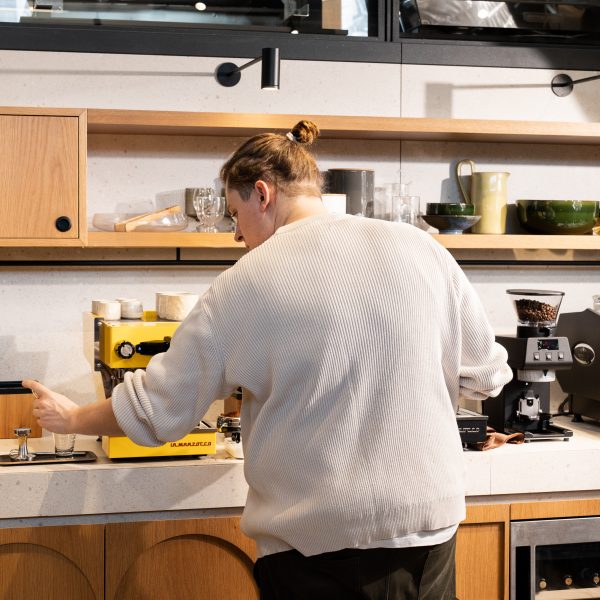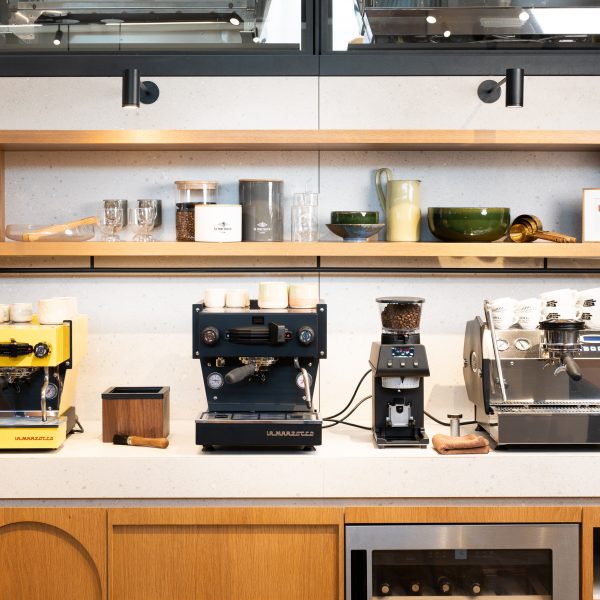Blog
Today I am Field Service Specialist at Accademia del Caffè Espresso. I started working as a mechanic at the age of fifteen, and then at twenty-two, I started field service and have been doing this practically all my life. My old boss, who showed me the first espresso machine, had an incredible head, just like Piero Bambi. He was a fantastic inventor and curious character; he had traveled the world thrice. The first day he showed me the espresso machine and explained a little how it worked: this is the little lever that does this, this is how it works… the next day, he gave me the toolbox with the tow (Teflon didn’t exist yet), the wire, a parrot, three gaskets and he told me GO. Later, I learned that he had sent me to the quietest customer, but… it started like this: the first day with him and the second day straight out, alone. With a two-horsepower van that never started. We didn’t just make espresso machines: refrigerators, cookers, extractor hoods, fryers, furnishings… Installation, service… whatever moved, I fixed it. For seventeen years, I worked at the Faema dealer in Florence, then I worked independently, and then I came to La Marzocco, first in After Sales and now here in the Accademia. And I’m retiring soon. For me, it was the perfect job; it was the one that responded precisely to what my little voice inside was telling me. I was born to understand, look for the why, and find a solution. Doing technical assistance is a cross between one’s sense of duty and personal pleasure in solving problems, and everything else is a consequence of these two things. It is a satisfaction because, as Piero said, you must respect and love what you are doing.
Of course, there have been ups and downs; this is a job. You have to feel it from inside. Otherwise, you won’t do it. You have to make sacrifices because you have no hours and no holidays. I wouldn’t wish that on anyone. But when you have it all worked out, it’s satisfying. Some people think it’s fun, just hanging out in bars. Sure, it’s too bad you start working when the bar closes. For five or six years, I had my own business, I was on my own and couldn’t cope, so I started looking for help. But how do you explain that there are no hours and you never know when they call you?
To do this job, you have to be born into it. It is a way of doing things that are reflected in every aspect of life: you put in love and passion, you fail a thousand times, and you get it right a thousand times. It is something that is part of the human side. I went on holiday with people I met as clients but with whom a relationship was established over time based on trust and managed to go beyond the work. It is no longer just about the technical input or the help you can give them.
When I had to service La Marzocco espresso machines, I would come here with my boss to get the parts. My boss worked with Piero, so they knew each other well. There were times when we came often, like when they changed the way they fixed the group to the boiler, because problems arose, so we had to do a lot of customer service. We used to come here and fill the van with boilers. They always chased us when we left because my boss was always sneaking a few away. The other partner, on the other hand, was famous because he didn’t know how to use the tester, and for any electrical problem on the espresso machines, he would go with the phase finder and never find anything. Then he would start changing parts. In the end, satisfied, he would show us that the machine was working. Of course, he had practically rebuilt it. Piero would become furious. On the other hand, I remember a time when I was in the car with him and Giovanna after dinner, and she, who was sitting next to me, had an allergic reaction and fainted. Piero put up with all things on his own, but on Giovanna, he lost his light, he was petrified, a piece of chalk, and he panicked.
And I remember once I made him so angry that he threw me out. We were talking about the problem of the leaking boilers. At first, we were very quiet, but I insisted and kept telling him, ‘Piero has to do this, maybe he has to do that,’ and at one point, I made him explode; he grabbed me by the collar and said, ‘But you know what you have to do? The door you came in through, take it and get out!’ and threw me out. The next day, we were together again, just like that.
Or I recall one time we went to a restaurant with a friend of Piero’s, and this gentleman gave us a prosciutto to give him as a Christmas present. I looked at my boss, who was taking the prosciutto, and said Yes, I’ll take care of it, and I already knew how it would end. Months later, we were there again with Piero, and the restaurateur asked Piero how the prosciutto was; he widened his eyes, and my boss said, ‘Pretty good! Piero would have put his hands on him if I hadn’t held him. Piero was the most amiable person in the world, but he would burst into flames in three seconds. Then he would calmly return, but Piero was like that. I did not experience him daily, but I came here if needed. But we were always on the phone whenever there was a problem with the espresso machines.
Those were other times. Today, nobody wants to do this job anymore. But if you go around the world a bit, you realize how different the perception is: being a technician is something prestigious. Twenty years later, people I haven’t seen find me for a long time, and they hug, kiss, and introduce me to others. This is the engineer!’. The British call me ‘engineer’… For them, being able to repair something and solve problems is a boast. But this job for young people today is not attractive. It means starting early in the morning, never knowing when you’ll finish… Then you get the call at six o’clock in the afternoon, and you have to work until the evening. You’re on call on Saturdays and have regular customers on Sundays… I once spent the morning of Christmas lunch on the Ponte Vecchio with the guy from the bar, and we ate two sandwiches left over from the day before. That was our Christmas lunch. His espresso machine was broken down, and he had to reopen it on the 26th. And I was there at six in the morning, and I was there at five in the afternoon.
For me, it was normal because when I do something, I like to do it in a certain way. That makes me feel good about myself. This is a problem because, in the end, if you are made like this, you will like it, and it will be addictive. It has happened to me many times to want to have more calls and go, go, go. This is also poorly explained, but I have noticed it in several people.
When I joined La Marzocco for two years, I missed this rhythm and this running. It took me two years to get used to a different environment. I missed my routine and daily relationships with people. The clientele, being outside all the time… I felt caged, and I continued in some ways to feel caged. Still, doing service is not always pleasant. You sometimes have to be more of a psychologist than a technician to deal with the customer. Because you always have to deal with emotional people. 80% of the time, they are vicious beasts who would put their hands around your neck. You have to be able to calm them down and take away their anxiety. You have to work while they are growling on your neck because the espresso machine is stuck and they are losing 4 euros. You are there with the espresso machine sizzling like an animal, and you must pay attention to every detail.
As technology advances, things obviously change. Methods change. With predictive maintenance, one hopes to avoid emergencies. They. Gradually, they will also start to break down less and less, and for that little bit, they may be able to repair themselves, but I still believe that the future is in tools.



